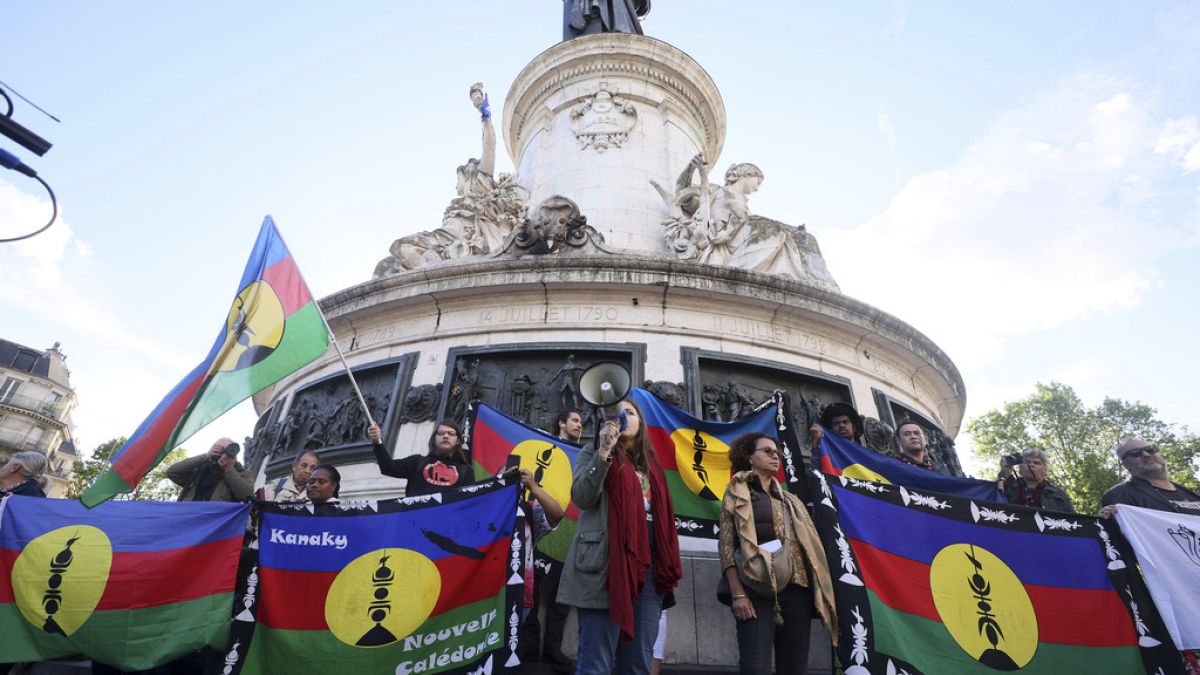A St Petersburg court has seized over €700mn-worth of assets belonging to three western banks — UniCredit, Deutsche Bank and Commerzbank — according to court documents.
The seizure marks one of the biggest moves against western lenders since Moscow’s full-scale invasion of Ukraine prompted most international lenders to withdraw or wind down their businesses in Russia. It comes after the European Central Bank told Eurozone lenders with operations in the country to speed up their exit plans.
The moves follow a claim from Ruskhimalliance, a subsidiary of Gazprom, the Russian oil and gas giant that holds a monopoly on pipeline gas exports.
The court seized €463mn-worth of assets belonging to Italy’s UniCredit, equivalent to about 4.5 per cent of its assets in the country, according to the latest financial statement from the bank’s main Russian subsidiary.
Frozen assets include shares in subsidiaries of UniCredit in Russia as well as stocks and funds it owned, according to the court decision that was dated May 16 and was published in the Russian registrar on Friday.
According to another decision on the same date, the court seized €238.6mn-worth of Deutsche Bank’s assets, including property and holdings in its accounts in Russia.
The court also ruled that the bank cannot sell its business in Russia; it would already require the approval of Vladimir Putin to do so. The court agreed with Rukhimallians that the measures were necessary because the bank was “taking measures aimed at alienating its property in Russia”.
On Friday, the court decided to seize Commerzbank assets, but the details of the decision have not yet been made public so the value of the seizure is not known. Ruskhimalliance asked the court to freeze up to €94.9mn-worth of the lender’s assets.
The dispute with the western banks began in August 2023 when Ruskhimalliance went to an arbitration court in St Petersburg demanding they pay bank guarantees under a contract with the German engineering company Linde.
Ruskhimalliance is the operator of a gas processing plant and production facilities for liquefied natural gas in Ust-Luga near St Petersburg. In July 2021, it signed a contract with Linde for the design, supply of equipment and construction of the complex. A year later, Linde suspended work owing to EU sanctions.
Ruskhimalliance then turned to the guarantor banks, which refused to fulfil their obligations because “the payment to the Russian company could violate European sanctions”, the company said in the court filing.
The list of guarantors also includes Bayerische Landesbank and Landesbank Baden-Württemberg, against which Ruskhimalliance has also filed lawsuits in the St Petersburg court.
UniCredit said it had been made aware of the filing and “only assets commensurate with the case would be in scope of the interim measure”.
Deutsche Bank said it was “fully protected by an indemnification from a client” and had taken a provision of about €260mn alongside a “corresponding reimbursement asset” in its accounts to cover the Russian lawsuit.
“We will need to see how this claim is implemented by the Russian courts and assess the immediate operational impact in Russia,” it added.
Bayerische Landesbank and Landesbank Baden-Württemberg both declined to comment. Commerzbank did not immediately respond to a request for comment.
Italy’s foreign minister has called a meeting on Monday to discuss the seizures affecting UniCredit, two people with knowledge of the plans told the Financial Times.
UniCredit is one of the largest European lenders in Russia, employing more than 3,000 people through its subsidiary there. This month the Italian bank reported that its Russian business had made a net profit of €213mn in the first quarter, up from €99mn a year earlier.
It has set aside more than €800mn in provisions and has significantly cut back its loan portfolio. Chief executive Andrea Orcel said this month that while the lender was “continuing to de-risk” its Russian operation, a full exit from the country would be complicated.
The FT reported on Friday that the European Central Bank had asked Eurozone lenders with operations in the country for detailed plans on their exit strategies as tensions between Moscow and the west grow.
Legal challenges over assets held by western banks have complicated their efforts to extricate themselves. Last month, a Russian court ordered the seizure of more than $400mn of funds from JPMorgan Chase following a legal challenge by Kremlin-run lender VTB. A court subsequently cancelled part of the planned seizure, Reuters reported.
Additional reporting by Martin Arnold in Frankfurt

/cloudfront-us-east-2.images.arcpublishing.com/reuters/SLQ5BRXVSJNE7F4OHMP5RLSH5U.jpg)



























